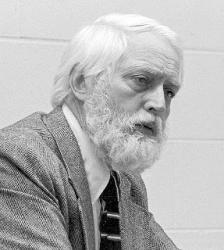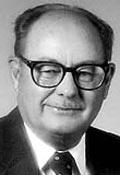1496 - 1575 Hymnal Number: 183 Author of "In You Lord, I Have Put My Trust" in The Presbyterian Hymnal Reissner, Adam, was born in 1496 at Mündelsheim (now Mündelheim) in Swabian Bavaria. He first studied at Wittenberg, and then, about 1521, he learned Hebrew and Greek under Johann Keuchlin. He then became private secretary to Georg von Freundsberg (who died Aug. 20, 1528), and accompanied him during the campaign in Italy, 1530-27. After the capture of Rome in 1527 he went back to Germany, and spent some time at Strassburg, where he became a friend and adherent of Caspar Schwenkfeldt. He seems to have been living at Frankfurt-am-Main in 1563, but thereafter returned to Mündelheim, where he was still living in 1572. He appears to have died there about 1575. (Koch, ii. 156; Preface to his Historia Herrn Georgen unnd Herrn Casparn von Fründsberg’s [died Aug. 31, 1536] Vatters und Sons .... Kriegesthaten, Frankfurt-am-Main, 1568. The British Museum copy is unmistakably dated on title 1568, but the preface is dated Jan. 31, 1572.)
Three of Reissner's earlier hymns are in Zwick's Gesang-Buch, 1536-40. His later hymns, including a translation of the hymns of Prudentius, are collected in two manuscripts, both dated 1596 (see Teglichs Gesangbuch . . . durch Adam Reusner, and contains over 40 hymns which may be regarded as by Reissner, the rest being by other writers of the school of Schwenckfeldt. Wackernagel, vol. iii., gives Nos. 170-194 under his name.
The only hymn by Reissner translated into English is:—
In dich hab ich gehoffet, Herr. Ps. xxxi. First published in the Form und ordnung Gaystlicher Gesang und Psalmen, Augsburg, 1533, and thence in Wackernagel, iii. p. 133, in 7 stanzas of 6 lines. It was included in V. Babst's Gesang-Buch , 1545, and repeated in almost all the German hymnbooks up to the period of Rationalism. It is one of the best Psalm-versions of the Reformation period. Included in the Unverfälschter Liedersegen, 1851, No. 629. The translation in common use is:--
In Thee, Lord, have I put my trust. A good translation, omitting st. vii., by Miss Winkworth, in her Chorale Book for England, 1863, No. 120.
Other translations are:—
(1) "Lord, let me never be confoundit." In the Gude and Godly Ballates, ed. 1568, f. 82; ed. 1868, p. 141. (2) "Great God! in Thee I put my Trust." By J. C. Jacobi, 1725, p. 33 (1732, p. 116). Repeated in the Moravian Hymn Book, 1754, pt. i., No. 118. (3) "Lord, I have trusted in Thy name." By Dr. H. Mills, 1856, p. 171. (4) "On Thee, O Lord, my hopes I lean." By N. L. Frothingham, 1870, p. 263. [Rev. James Mearns, M.A.]
--John Julian, Dictionary of Hymnology (1907)
Adam Reissner


 My Starred Hymns
My Starred Hymns





